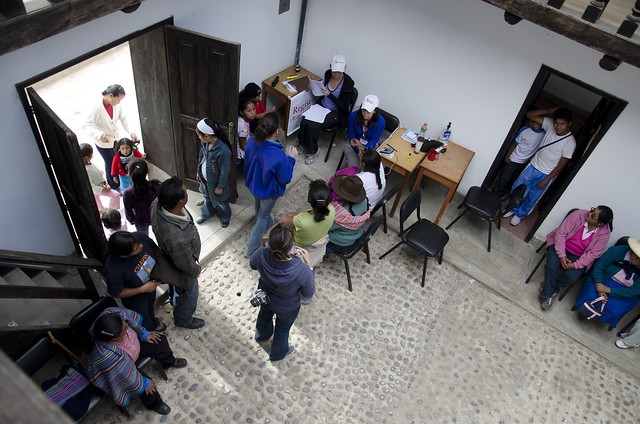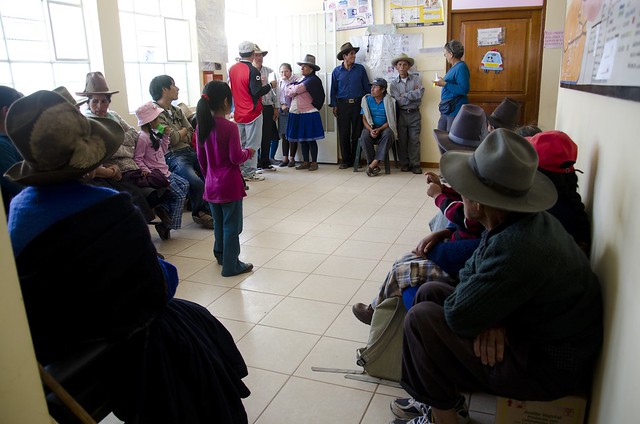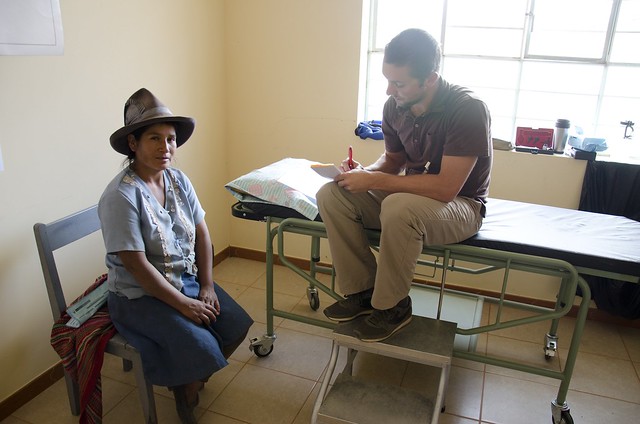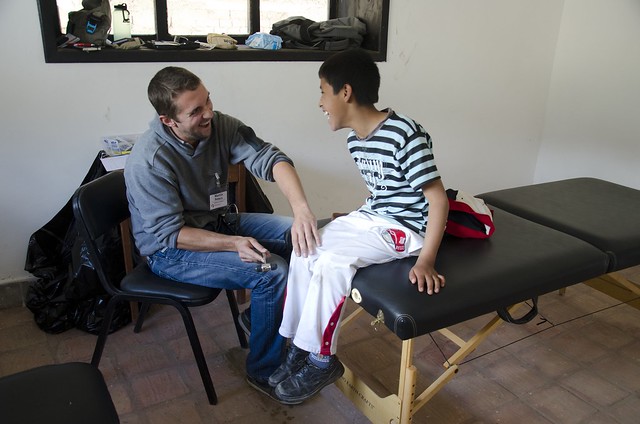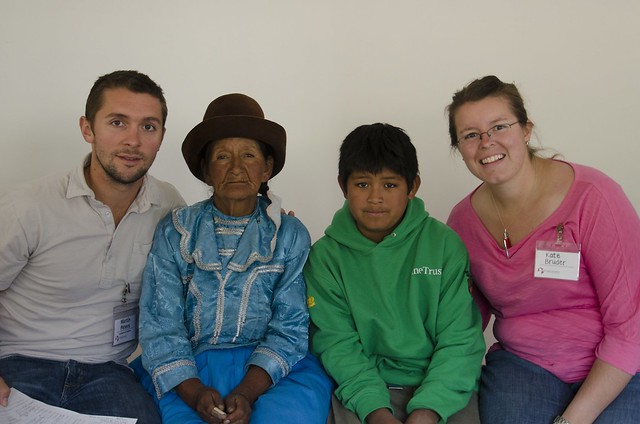Every year, Scripture Union Peru partners with a non-profit health organization in the States called Health Bridges International. Based in Portland, Oregon, HBI facilitates sustainable improvements in people’s health through collaboration with established resources.
Focusing their efforts on the people of Peru, HBI exists to build bridges between people and services in an effort to provide the most critical needs to those living in impoverished and underserved areas.
For the past 15 years, HBI has been working in partnership with SU Peru to host free medical campaigns in underserved areas of the country – typically where one of our Girasoles homes for abandoned boys exist. They send a team of volunteers from both the United States and Peru, made up of doctors, dentists, nurses, medical students and assistants to spend 1 week putting on an intense medical and dental campaign. And, if needed, each doctor/dentist is paired with a Spanish-English translator.
This year, they came to Kusi. A part of the goal for the trip was to host a free medical and dental clinic not only on the SU property in Kusi, but to also a location in the community. We spent 2 days at an already established medical post in the small town of Musho and the final 3 days at Kusi.
I don’t think I can even begin to put the experiences from the week into words. During the 5 days of clinics, the team of 6 doctors and 2 dentists saw approximately 675 patients, and the pharmacy filled approximately 1750 prescriptions.
In an effort to minimize confusion for the patients and HBI team, the clinic process is extremely streamlined. Every patient that comes to see a doctor or dentist has a registration form filled out with vitals and a brief medical history, and then is ushered into a waiting room.
During the week, I was paired with Dr. Martin, a DO student from Portland. The majority of the people we saw had severe shoulder, back and waist pain that was caused from years of working in the fields or improperly lifting heavy items, or carrying heavy packages on their backs.
And, we were given the occasional child for a well-child exam, which were particularly fun.
Coming from high up in the mountains, we frequently encountered patients that barely spoke Spanish, but communicated in Quechua. When we had a Quechua-only patient, Dr. Martin and I relied on the help from a Quechua-Spanish speaker. Thankfully, there were a few helpers (including a few of the Girasoles boys!) that were able to help. It was quite the sight to see Dr. Martin explaining to me in English, I turn and explain in Spanish to Edwin (one of the Girasoles Quechua speakers in the green sweatshirt) and then Edwin explain in Quechua to the patient.
At the end of our second (and last) day in Musho, we were given a patient named Alejo. Alejo is 62 years old and lives in Parillentana. Not knowing all of the small towns around the area, I asked Alejo where Parillentana is located. He said, “not that far, just over that way” while pointing out the window. After more probing, he eventually said that he walked 30 minutes along dusty, unpaved roads to reach the clinic.
Thirty minutes doesn’t sound like that far of a walk, but it clearly was quite the accomplishment for Alejo. The first thing we noticed about him was that he had severe cataracts in one of his eyes, and he said that he was completely blind in the other. He moved very slowly and required the assistance of a walking stick. He also had lost 3 fingers on his right hand and walked slightly hunched over.
Not being able to fix his every need, Dr. Martin started on what he could do, and helped Alejo relax and stretch out his very tight muscles. The whole time Dr. Martin was working, Alejo was telling me about his life. He has never been married, has no children, and lives alone but a nephew lives close by. Since he has poor vision and mobility, he cannot work in the fields like everybody else and relies on the help of his nephew and family to survive.
Despite his circumstances and the evident fear and worry that he experienced from not being able to work and earn money, Alejo was very thankful. Like many of the patients, he thanked Dr. Martin and me numerous times for the help. But greater than that, Alejo was thankful for his life and the simple joys, despite his situation. I saw this thanksgiving in many of our patients, both in Musho and Kusi.
A couple days later, after Dr. Martin finished examining an older woman, she burst into tears. When she was finally able to speak, she thanked us profusely for helping her. She didn’t have money to go to the nearby, very-basic health post, and even though she wasn’t going to be cured today, she was extremely thankful that somebody talked with her, listened to her concerns, and gave her some form of help.
In some situations like this woman, through the partnerships HBI has developed over the years, we were able to provide referrals to local Peruvian doctors or medical programs. The point of the week wasn’t to drop into Musho or Kusi and provide as much free medical and dental care as possible and never return. In this particular trip, the team did see and help many patients, but the goal was to build a bridge between the patient and the medical care that already exists in the Musho and Kusi area, and even as far as Lima.
Through compassion, empowerment and collaboration (with organizations like SU Peru), Health Bridges International is making a difference in communities here in Peru.
Want to see more? More photographs from the clinics in Musho and Kusi can be found on Flickr.
For more information about the work of Health Bridges International, visit their website I am the Bridge.

